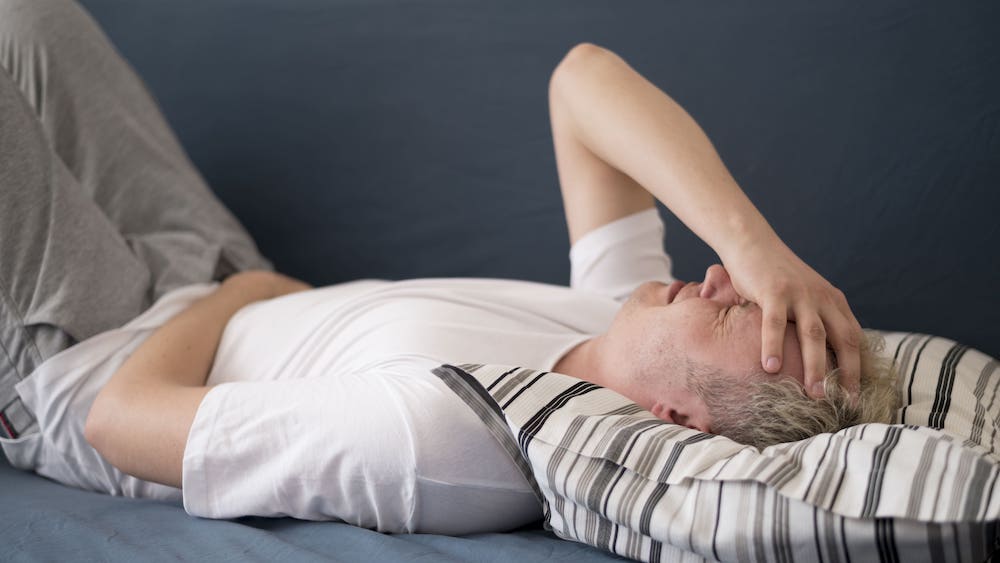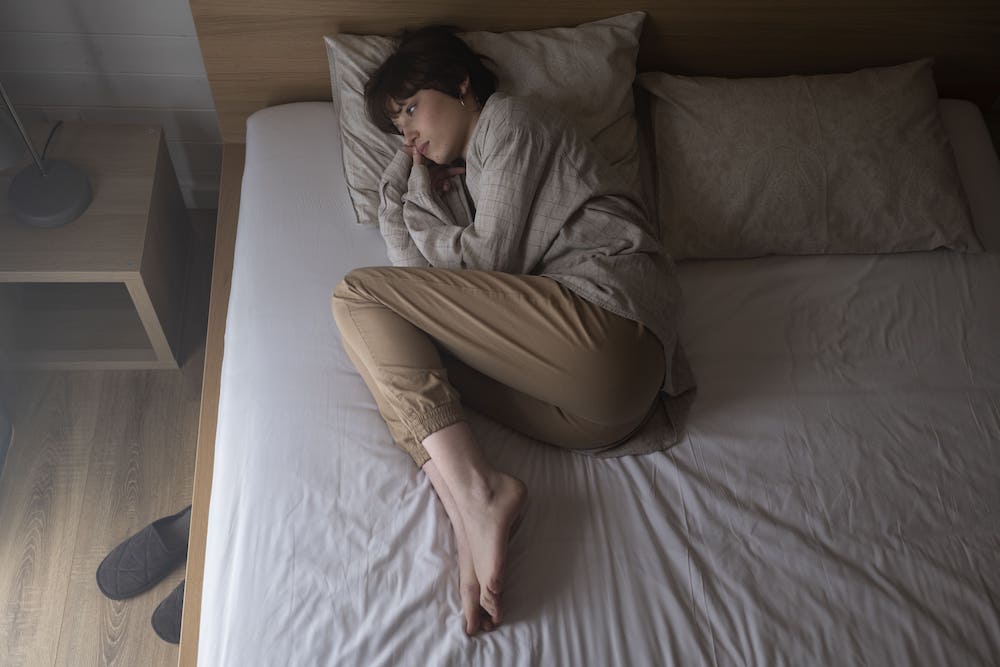If you are struggling with borderline personality disorder, you might be asking, “Can BPD cause sleep problems?” A lot of research has studied the relationship between BPD and sleep issues and found that the impact goes both ways, such that symptoms of borderline personality disorder can lead to sleep problems, and sleep problems can’t exacerbate symptoms of borderline personality disorder.
Introduction
If you are struggling with borderline personality disorder and sleep issues, it’s essential to understand the relationship between these two. Equally important is knowing what contributing factors there are behind sleep disturbances and the ways in which sleeping problems can worsen symptoms of borderline personality disorder.
This article will cover the primary features of borderline personality disorder, the factors that contribute to BPD and sleep issues, and how this has an impact on your symptoms. It will also provide a quick overview of some things you can do to try and reduce your risk and manage the quality of your sleep and the symptoms of your BPD.

BPD and its core features
Personality disorders are mental health conditions that cause thoughts and actions which vary dramatically from cultural expectations.
Borderline personality disorder manifests with erratic behaviors characterized by emotional instability and impulsivity. There are several categories of personality disorders. Borderline personality disorder (BPD) is characterized by:
- A client who cannot control emotions
- Clients with low self-esteem
- A client who acts impulsively
- Clients with relationship problems
If you are struggling with borderline personality disorder, there is a high risk of impulse control disorders or substance abuse disorders occurring at the same time.
Factors that contribute to sleep problems in individuals with BPD
So, can BPD cause sleep issues? There are, in fact, many factors that contribute to sleep problems in individuals who struggle with borderline personality disorder, many of them having to do with emotions, depression, stress, anxiety, and trauma.
Emotional dysregulation
BPD and sleep issues are common. One of the biggest reasons for BPD and sleep problems has to do with emotional dysregulation. Emotional dysregulation is one of the most common symptoms of borderline personality disorder.
This means individuals who struggle with emotional dysregulation are more likely to struggle with BPD sleep issues.
When individuals are unable to process their emotions, it can cause heightened arousal not only when they are awake but while sleeping. This means that clients are more likely to experience sleep disturbances.
Studies have found that there is an increased risk of harmful BPD sleep patterns in young individuals with a borderline personality disorder because they are still developing their emotional regulatory skills.
Tangentially, nightmares are a common symptom and can increase the risk of BPD and lack of sleep in individuals who have struggled with trauma.
Trauma
Trauma has a substantial impact on sleep patterns. Untreated trauma, especially PTSD, can cause many symptoms, including insomnia and severe nightmares or flashbacks. Individuals who struggle with BPD and trauma are more likely to develop bad BPD sleep patterns because of pre-sleep arousal or heightened arousal while sleeping.

Anxiety, depression, and other comorbid conditions
Studies indicate that anxiety, depression, chronic stress, and other comorbid conditions can increase insomnia, insomnia severity, and poor sleep quality. In fact, young people are more likely to experience stress, anxiety, and depression at the same time as BPD leading to BPD sleep issues.
BPD and sleep problems are often related to nightmares that are had while sleeping and arousal before sleeping. Individuals who are struggling with trauma, anxiety, depression, or other comorbid conditions are statistically more likely to struggle with pre-sleep arousal leading to things like:
- An inability to fall asleep
- Anxiety over anticipated nightmares
- Waking multiple times at night
Findings indicate that BPD sleep issues are most severe when it comes to the overall quality of sleep associated with stress and depression, followed by anxiety.
BPD Sleep Patterns
Given all of these issues, you might still be asking, “Does BPD cause sleep problems, and if so, which types?”
Individuals with BPD demonstrate higher rates of:
- Hypersomnia which means they sleep too much, and
- Insomnia, which means they are unable to sleep enough.
The reason for both extremes is that there are extreme variations in sleep duration and quality. Some individuals who struggle with pre-sleep arousal might find it more challenging to fall asleep, which means it takes them longer to get to sleep which can result in achieving very little sleep or struggling with insomnia.
Individuals with high levels of anxiety might similarly be anxious about potential flashbacks, nightmares, or not being able to sleep, especially if it is an issue with which they have struggled for the last several days. This heightened arousal can exacerbate BPD sleep patterns and lead to increased problems with insomnia.
An individual struggling with BPD and depression might find it challenging to get out of bed and end up struggling with hypersomnia and sleeping too much.

BPD and sleep: how sleep makes symptoms worse
Conversely, all of these disturbances in BPD sleep patterns can exacerbate many of the underlying symptoms of borderline personality disorder. Sleep quality or duration issues can make it more challenging to regulate emotions. Individuals are more likely to be impulsive if struggling with sleep problems.
Summing up
It’s essential to practice good sleep hygiene, stress management, and self-care in order to manage BPD sleep issues. Some examples include:
- Meditating in bed or right before bed,
- Exercising during the day,
- Avoid alcohol, smoking, illegal drugs, or overeating,
- Connect with others,
- Avoid overscheduling,
- Doing light stretching or yoga to release tension before sleep,
- Turning off electronics one hour before bed,
- Journaling to release emotions and anxiety before bed,
- Gratitude exercises,
- Eating healthy but not consuming caffeine, sugar, or alcohol a few hours before bed.
If you are struggling with BPD and lack sleep, you should consult mental health professionals for comprehensive treatment. Psychiatry care can address both sleep issues and BPD and help you prioritize proper sleep hygiene while receiving the most appropriate support for your borderline personality disorder.



